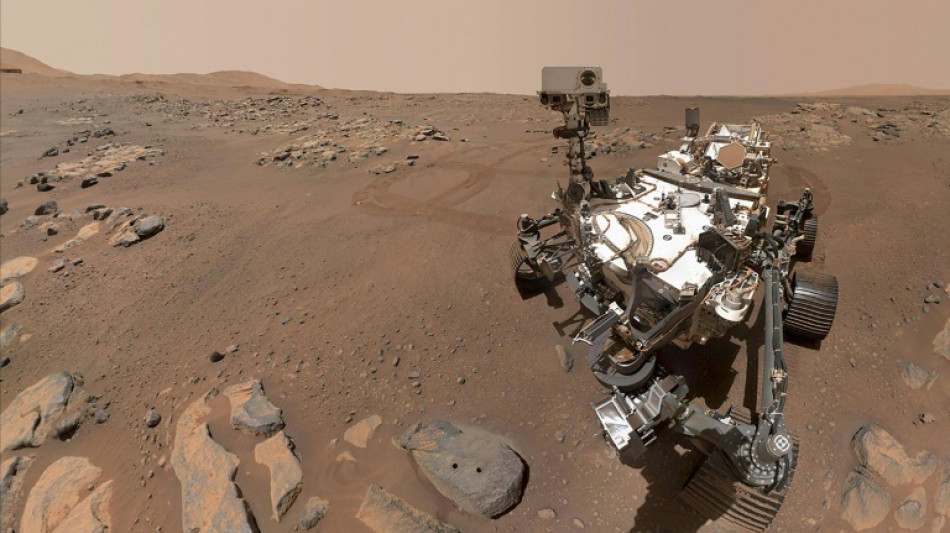

NASA seeks faster, cheaper way to bring Mars rocks to Earth
NASA said Monday it was looking for ways to bring Martian rocks collected by the Perseverance rover back to Earth earlier and at a lower cost than planned after facing criticism for going massively over budget.
The effort comes as China is making progress towards a simpler "grab-and-go" sample return mission to the red planet "around 2030," according to state media, which would make it the first nation to achieve the feat.
"The bottom line is that $11 billion is too expensive, and not returning samples until 2040 is unacceptably too long," the US space agency's chief Bill Nelson told reporters on a call.
NASA and the European Space Agency (ESA) had planned to land a vessel around the Jezero Crater, where the Perseverance rover has spent years searching for signs of ancient microbial life that may have existed billions of years ago when Mars was warmer and wetter than today.
Thirty sample tubes collected by the rover would be loaded onto a small rocket and launched into orbit, where another spacecraft would capture them and bring them home.
But a recent audit of NASA's plans by an independent review board said the Mars Sample Return mission was established "with unrealistic budget and schedule expectations from the beginning" and that it had a "near zero" chance of keeping to planned launch dates.
The outside experts also found the overall costs could potentially balloon to $11 billion, nearly double what NASA had stated.
As a result, NASA plans to solicit new proposals from the space industry that would pare back some of the mission's ambitions.
"In order to do things faster, we may have to lower the scope of the number of samples," NASA's Nicky Fox told reporters, without specifying what the new number would be.
Nelson said the agency's hand was also forced by budgetary constraints imposed by Congress which led NASA to request over $2 billion less than it had hoped for 2025 as a result of a debt ceiling agreement reached last year.
China's Tianwen-3 Mars sample return mission is working toward a launch around 2030, state media said last month.
Though China's mission is simpler and would only take samples from the immediate vicinity of its landing site, being the first to return rocks from another world would still be a huge geopolitical win.
China could also be the next nation to place crew on the Moon if its 2030 mission there happens before the NASA-led Artemis 3 landing.
"If they are able to return samples from Mars before the US does, even if it's a grab sample, which is nearly scientifically worthless, that is much more like a Sputnik moment," G. Scott Hubbard, a former top NASA official and professor at Stanford, told AFP recently, indicating it would be a wake-up call for Western nations.
S.Jones--MC-UK




